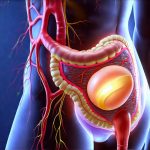Anxiety is a pervasive experience in modern life, affecting millions worldwide. While often perceived as a mental health concern, its impact extends far beyond psychological well-being. Increasingly, research highlights a strong connection between anxiety and our digestive system, revealing a complex bidirectional relationship where one can significantly influence the other. Understanding this link is crucial for holistic health management, recognizing that addressing one aspect may positively affect the other.
The gut and brain are intricately connected via what’s known as the gut-brain axis – a two-way communication network. This axis involves neural, hormonal, and immunological pathways, allowing constant dialogue between these systems. When anxiety levels rise, this communication is disrupted, leading to various digestive symptoms; conversely, issues within the digestive system can exacerbate feelings of anxiety. It’s not simply ‘in your head’; it’s a physiological interplay with real consequences for overall health.
The Gut-Brain Axis Explained
The gut-brain axis isn’t just a theoretical concept; it’s a demonstrable physiological reality. Signals travel from the gut to the brain and vice versa, impacting mood, cognition, and even behavior. A significant part of this communication involves the vagus nerve, a cranial nerve acting as a direct line between the gut and the brain. Microbial imbalances in the gut (dysbiosis) can also influence these signals, contributing to anxiety and digestive distress.
This complex system means that what we eat, how stressed we are, and even our immune responses can all impact both mental and physical health simultaneously. Recognizing this interconnectedness is key to developing effective strategies for managing both anxiety and digestive issues.
Anxiety’s Impact on Digestion
Anxiety doesn’t just cause emotional distress; it triggers a cascade of physiological changes that directly affect the digestive system. When we experience anxiety, our bodies enter “fight or flight” mode, diverting energy away from non-essential functions like digestion. This can manifest in several ways, including altered gut motility (the speed at which food moves through the digestive tract), increased intestinal permeability (“leaky gut”), and changes in gut microbiota composition.
Common Digestive Symptoms Associated with Anxiety
Many individuals experiencing anxiety report a range of digestive symptoms. These can include bloating, abdominal pain, diarrhea, constipation, nausea, and even irritable bowel syndrome (IBS)-like symptoms. The specific manifestation often depends on the individual and the type of anxiety they’re experiencing. For example, acute anxiety might lead to sudden diarrhea or urgency, while chronic anxiety could contribute to more persistent digestive issues like IBS.
The Role of Cortisol & Inflammation
Cortisol, a stress hormone released during anxious moments, plays a significant role in these digestive disruptions. Chronically elevated cortisol levels can negatively impact gut barrier function, making the intestines more permeable. This allows undigested food particles and toxins to enter the bloodstream, triggering inflammation. Chronic inflammation is linked not only to digestive issues but also to anxiety itself, creating a vicious cycle.
Gut Microbiota & Anxiety: A Two-Way Street
The composition of our gut microbiota—the trillions of bacteria residing in our intestines—is heavily influenced by stress and anxiety. Anxious individuals often exhibit altered gut microbial diversity, with reductions in beneficial bacteria and increases in potentially harmful ones. This dysbiosis can further exacerbate digestive symptoms and even influence brain function through the production of neurotransmitters. Conversely, a healthy, diverse gut microbiome is associated with improved mood and reduced anxiety levels. It’s not just about what we do to our gut; it’s also about how our gut affects us.
Ultimately, understanding the link between anxiety and digestive issues isn’t about finding a cure-all solution but rather recognizing the interconnectedness of mind and body. Managing anxiety through techniques like mindfulness, meditation, therapy, or lifestyle changes (diet, exercise) can positively impact digestion, and addressing underlying digestive imbalances may alleviate some symptoms of anxiety. A holistic approach focusing on both mental and physical well-being is often the most effective path to improved health. It’s important to consult with healthcare professionals for personalized guidance and support in navigating these complex relationships.


















